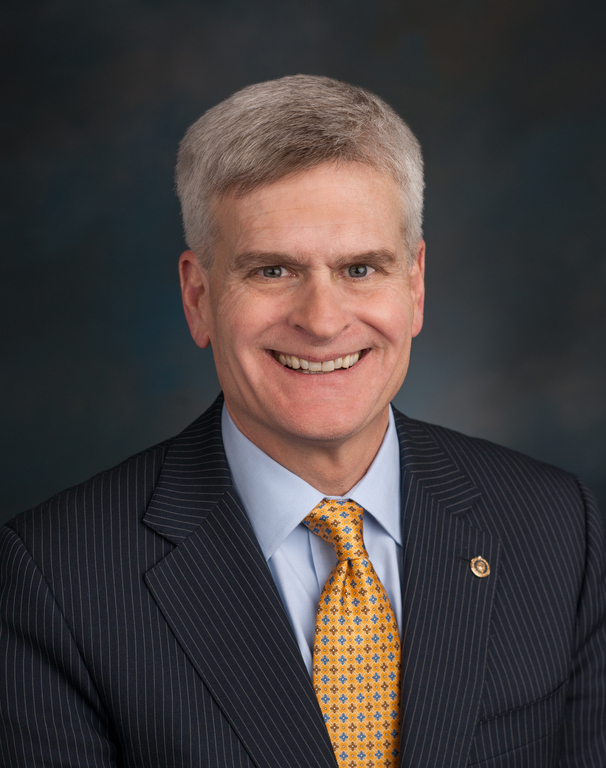Posts tagged ESG
DOL once again set to tackle joint employer, independent contractor regulations
August 20, 2025 // Meanwhile, DOL in May told the 5th U.S. Circuit Court of Appeals that it would no longer defend the last administration’s rule allowing retirement plan fiduciaries to consider environmental, social and governance, or ESG, factors when making investment decisions from a lawsuit filed by several Republican-led states. In another shift, DOL in June said it would begin issuing opinion letters through five of its subagencies. The agency’s new regime published the first such letter in May on the subject of the independent contractor classification status for virtual marketplace company workers. The letter reinstated a stance DOL previously articulated in a 2019 letter that had been rescinded during the Biden administration.

Why the Term ‘ESG’ Is Disappearing — But the Practices Remain
June 22, 2025 // In 2023, Vincent Vernuccio claimed “You will be hearing less and less about ESG. They are still going to be doing it. But they are just not calling it ESG.” I was surprised to hear that back then. Nearly two years later, it is time to examine how this prediction has unfolded. What has changed in corporate communication, investment trends, and regulatory landscapes? And how do developments in the United States compare to those in Europe, where ESG is subject to increasing scrutiny and reform?
Labor Watch: Republicans and the Teamsters, a Bad Relationship
June 12, 2025 // By ingratiating itself with the intellectual successors of the Eisenhower-era “eastern Republican group,” both policy advocates like American Compass and officeholders like Sen. Josh Hawley (R-MO), the Teamsters hope to break the Taft-Hartley Consensus and secure major privileges for itself and all the other unions that are openly Everything Leftist. American Compass argues to force effectively every single American worker to accept a union contract and a union-dominated workplace, whether they want one or not. Sen. Hawley hopes to resurrect Barack Obama’s not-so-free-choice legislation. Sean O’Brien is more than happy to provide presenting sponsorships or small campaign contributions to his former adversaries as they make mistakes made first long ago. The rest should learn from history so as not to repeat it.
Hearing Recap: “Investing for the Future: Honoring ERISA’s Promise to Participants”
May 3, 2025 // The Health, Employment, Labor, and Pensions Subcommittee held a hearing examining the Employee Retirement Income Security Act (ERISA) and the Left’s efforts to manipulate ERISA plans to push a radical political agenda. These benefit plans hold an estimated $14 trillion in assets and benefit 156 million workers, retirees, and dependents.

Michael Watson: Big ESG’s Big Partner: Big Labor
April 20, 2025 // Unions’ principal interest in the ESG activism movement is on the “S” or “social” prong of the acronym. Both unions themselves, like the International Brotherhood of Teamsters, and critics of unions, like the Institute for the American Worker, will argue that Big Labor views ESG as a category for advancing union organizing and other core union priorities. Proxy Preview shows unions and union-aligned groups (like city and state pension funds and the largely union-owned and union-controlled Amalgamated Bank) pushing shareholder resolutions demanding that companies “adopt a noninterference policy respecting freedom of association” or “respect for freedom of association and collective bargaining”—euphemisms for neutrality in union organizing. Under a neutrality agreement, the employer agrees not to present its views on the potential consequences of union organizing to employees, and it may agree not to confirm union majority support by a government-supervised secret-ballot election, instead using public union-card signatures (known as “card check”).
The Teamsters’ Trojan Horse
April 16, 2025 // Hawley may believe that Sean O’Brien and his Teamsters Union speak for a new faction of a political coalition he hopes to one day lead. But in an era when fewer than 6 percent of private-industry workers are unionized, O’Brien does not. For that reason, organized labor comfortably lives in the house of the political left — no matter what rhetorical blandishments union bosses like O’Brien contribute in Republican Party meetings, no matter what chump change union PACs give Republicans like Hawley who abandon the party’s traditional labor policies, and no matter what union members like the majority-pro-Trump Teamsters might want their dues to do.
A History of Everything Leftist Unionism: The Old Left and the Reds
March 10, 2025 // American labor radicalism has come a long way from Soviet agents in the Congress of Industrial Organizations through the UAW-funded Students for a Democratic Society to today’s SEIU purple-shirted demonstrators and red-shirted UAW anti-anti-Hamasniks. As Big Labor has declined, what independence the labor movement had from the progressive Left has diminished to the point where, with rare divergences, it effectively has ceased to exist. The causes of the Long Decline are many, and the causes of Big Labor’s leftism are also many, ranging from financial incentive structures of union officials to the structure of collective bargaining. Today, organized labor is a full member of the Everything Leftist coalition, not just in economic issues and labor organizing but also in social and foreign policy.
Competitive Enterprise Institute Opinion: Time to End the ESG Shakedown
January 21, 2025 // Any agency that is not charged by Congress with pursuing those specific goals should not have staffers assigned to those goals. The Environmental Protection Agency is the place for climate policy; the Equal Employment Opportunity Commission is the place for workplace discrimination claims. The executive branch does not need an infinite regress of staff, in each agency, assigned to advance every progressive policy priority under the sun. New leaders at the independent agencies, such as the Securities and Exchange Commission and the Federal Trade Commission, will receive less direct instruction from the new president. Still, they will have broad discretion to set the agenda at their respective agencies for enforcement, future rulemakings, and repeals. SEC chairman-designate Paul Atkins, for example, will have the ability to fully reverse the pro-ESG mission creep seen over the last four years. He can, instead, focus the SEC on such charmingly old-fashioned goals as encouraging capital formation and new investment opportunities rather than micromanaging the board decisions of every public company in America.

EXCLUSIVE: Bill Cassidy To Introduce Bill To Stop Left-Wing Investing From Taking Over Retirement Funds
September 27, 2024 // “Asset managers should prioritize helping Americans achieve the best return for their retirement, not funneling their clients’ money to fund a left-wing political ideology,” Cassidy, who serves as the ranking member of the Senate Health, Education, Labor and Pension Committee, said. “This legislation protects 152 million Americans who depend on a strong retirement to live after their career is over.” Under current Department of Labor rules, administrators of employee retirement plans are allowed to consider ESG factors when choosing between investment opportunities they have determined to be of equivalent quality. If a retirement fund determines multiple investment options are of equal value under Cassidy’s bill, it must document how it made that determination and then choose at random between the options.

Hard labor No, American conservatism shouldn’t move leftward on unions
July 30, 2024 // “The Teamsters recently stated the ‘S’ in ESG is ‘a critically important tool for advancing worker interests in the 21st century,’” he wrote. “Similarly, the AFL-CIO has said ESG investing ‘advance[s] the causes of working people.’” The “end game is to give unions more power,” Vernuccio concluded. “Yet while unions win, workers lose — and so do the investors whose money is being used for political purposes.”
